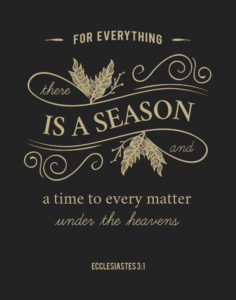Hiring Church Staff
When is the right time to add staff to your team?
1) When no volunteer or team is able to do what needs to be done in a given area.
2) When what is required to be done is more than a single leader or team can reasonable do.
3) When leadership is needed in a given area and there is one to do it.
4) When there is an expectation that needs to be met so often that it is not reasonable for a volunteer.
“Parkinson’s Law” – when work expands so as to fill the time available for its completion. People find a way to make jobs more complicated and time-consuming, which in the end requires more staff to get the same amount of work done. When there are transitions in leadership, there should be an analysis of the work required to the time you are asking the leader to complete it – is it reasonable, exaggerated, etc.?
5) When expertise is needed that is not found within the church body, and that expertise is needed on such a regular basis that it is reasonable to hire a person to do it.
Things to Consider for the Staff Position:
• The person will be asking three questions that need to be addressed.
1) What am I responsible for?
2) What decisions am I able to make on my own?
3) Whom do I report to for help?
• Staff should not do what volunteers can do. The goal of the leader is to put church members in place of ministry so they can grow in their faith, and experience the joy and blessing of service. This is also how we grow and mature in our walk with the Lord. If the leaders do everything, they limit the growth of the ministry, and rob members of these blessings.
• A team should always support the staff – no lone rangers. Sometimes. Staff are hired because no one can do what needs to be done, but the leader must immediately seek to build a team.
• Be careful not to load a new staff person with all the needs of the church. The example of deacons in Acts 6:2 was an effort to allow the elders to focus on their calling/ministry. The staff need to be able to focus, and should avoiding generalizing as much as possible.
• Church leaders should be equipping/teaching others on their team to do what they do. Ephesians 4:11-13 “And he gave the apostles, the prophets, the evangelists, the shepherds and teachers, 12 to equip the saints for the work of ministry, for building up the body of Christ, 13 until we all attain to the unity of the faith and of the knowledge of the Son of God, to mature manhood, to the measure of the stature of the fullness of Christ, . . .”
• Hire leaders of ministry, not people to do the ministry themselves.
Should the church hire from within or hire from the outside?
• When your church culture is healthy, hiring from within will perpetuate that culture. Hiring from the outside will change the church culture.
https://seniorpastorcentral.com/2830/staff-churches-under-600/
I would suggest this article because he does a good job of describing when you should hire staff and the order they should be hired. It’s a good read if you are interested in this topic.


 5. Review the previous year. I keep a journal where I record detailed notes of meetings, planning lists, journal entries, ideas etc. and I when I go through this time of planning, I review these journals from the previous year. I am reminded of ideas that I had forgotten about, people I need to develop relationships with, projects that have been completed (or not completed), or even goals that have been met.
5. Review the previous year. I keep a journal where I record detailed notes of meetings, planning lists, journal entries, ideas etc. and I when I go through this time of planning, I review these journals from the previous year. I am reminded of ideas that I had forgotten about, people I need to develop relationships with, projects that have been completed (or not completed), or even goals that have been met.
 ***There is a sermon link at the bottom of this page from a sermon I preached on Ecclesiastes 3, a few years ago.
***There is a sermon link at the bottom of this page from a sermon I preached on Ecclesiastes 3, a few years ago.